Company
MRI provides consulting services to +100 municipalities across New England.
Visit MRI ↗
HQ
Plymouth, NH
Industry
Municipal Govenment
Christian Pearsall
Co-Owner of MRI
INTRO
INTRO
Municipal Resources, Inc. (MRI) was founded in 1989. Headquartered in Plymouth, New Hampshire, MRI works with over 125 local municipalities across New England, providing specialized consulting and software solutions. MRI’s mission is to help towns achieve operational excellence by offering deep domain expertise in areas such as payroll, administrative services, public safety expertise and property assessment.
For many small municipalities facing workforce constraints—particularly due to retirements and shrinking staff capacity—MRI serves as a trusted partner, helping them transition from manual, staff-intensive processes to more streamlined, sustainable operations.
When MRI co-owner, Christian Pearsall, came to Velos looking for ways to automate a handful of manual processes, he wasn’t sure it was possible.
“Smaller municipalities depend on manual tasks and staff to connect legacy systems. They face complex compliance, fragmented processes, and strong employee resistance—making new technology adoption risky.”
USE CASE # 1
Using AI to Augment Month-End Reconciliation
One of the manual processes that Christian was eager to automate was ledger reconciliation.
At the end of every month, local municipalities must reconcile the financial transactions and checks recorded in their general ledger with the transactions and checks that “happened” according to the bank statement. Reconciliation is a key part of keeping financial records accurate and trustworthy by ensuring the cash balance in the books matches external records such as bank statements.
In the case of municipal finance, it’s especially important due to the strict municipal budget rules that dictate how funds are appropriated and spent. Account reconciliation helps prevent errors and fraud and shows that public funds are being managed responsibly. Regular reconciliations build trust with the community, auditors, and officials.
Today, this process is handled by MRI’s senior municipal finance staff who handle dozens of municipalities’ reconciliation processes every month. Thousands of unreconciled ledger transactions and check records need to be reviewed to see if there is a corresponding matching transaction or check in the bank statement for the month. If a match is found, the transaction or check can be marked as “cleared”.
Manually matching deposits, withdrawals, and checks against ledger entries is not only time-consuming for MRI but also error-prone.
“Account reconciliation is one of the most important and challenging functions of the municipal finance office. The financial transactions are generated by a variety of departments and systems which are statutorily required to be segregated. Not only are the financial transactions inherently inconsistent, municipalities use a variety of banking partners, resulting in different looking reconciliation processes across our customers," notes Christian.
Velos automated this process by using AI to standardize the data in a variety of bank statement formats and intelligently match bank statement transactions with the general ledger.
One of the biggest challenges is that matches aren’t always one-to-one, and a significant portion of matching involves identifying bank transactions that are close or that add up to a single entry in the ledger.
To handle this, Velos created a three-tier matching engine to find exact matches, matches that were close enough but not exact, and matches that were multi-entry combinations. Problematic transactions are also highlighted requiring special attention.
By providing MRI’s finance experts with this initial AI triaging, Velos is able to free them to focus on quick verification of the trickiest and most problematic transactions.
“Reconciling ten different town bank statements against our general ledger used to be a multi-day ordeal each month. Now, with Velos, we can quickly identify and isolate reconciling items that need review and correction, allowing our team to focus on higher-level analysis, not time consuming data wrangling,” says Christian
Outcome:
Eliminated over 500 hours annually spent on ledger reconciliation
Reduced manual errors
Freed finance team to focus on strategic analysis rather than transactional matching.
USE CASE #2
Extracting key information from employee payroll data
In 2025, there’s a lot of payroll providers that help private industry B2B companies automate employee payroll – however, when it comes to municipal governments, the same cannot be said.
Unlike private-sector companies, municipalities must juggle hundreds of unique payroll requirements — from earnings and deduction codes, to union step schedules, multiple pay calendars, state pension systems, and GASB-compliant accounting rules.
Migrating employees and payroll data into MRI’s system is a highly manual, resource-intensive process. The work often involves importing historical pay runs and validating that every calculation in the new system aligns with the old one, ensuring both accuracy and compliance.
Prior to Velos, MRI’s staff would need to manually work through long PDFs exported from the previous system. With Velos, MRI is able to intelligently and automatically migrate customers’ historical data so their staff can focus on verification and implementation instead of data entry.
“We’ve cut dozens of hours of manual work manipulating data with each client onboarding. This automation allows us to focus only on data outliers, directing our senior staff resources exactly where is needed. Accuracy is critical in the municipal payroll space and automating this workflow with Velos has allowed us to scale our business without adding additional staff.”
Today, MRI has built a workflow that ingests multi-page payroll-registers and automatically detects items like paycodes, line-item earnings, deductions, and tax codes.The system then enriches any missing values, runs a validation check to ensure each “rate × units = amount,” and maps all rows into MRI’s Payroll History schema.





